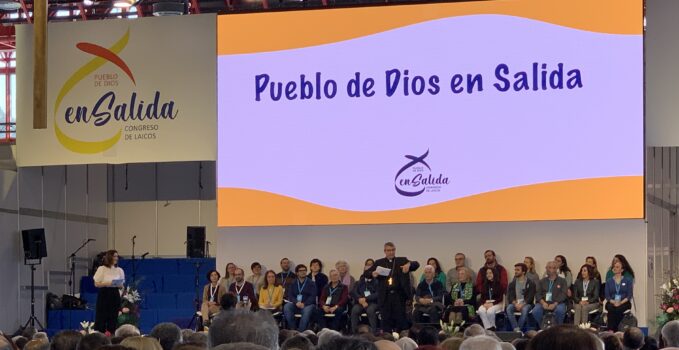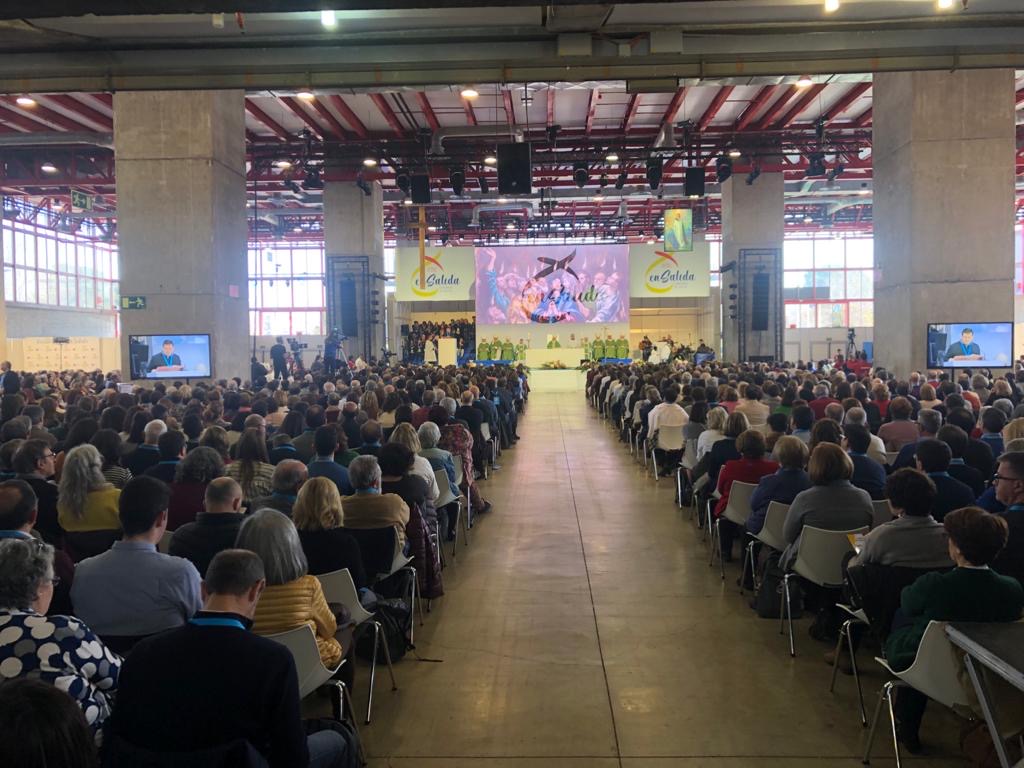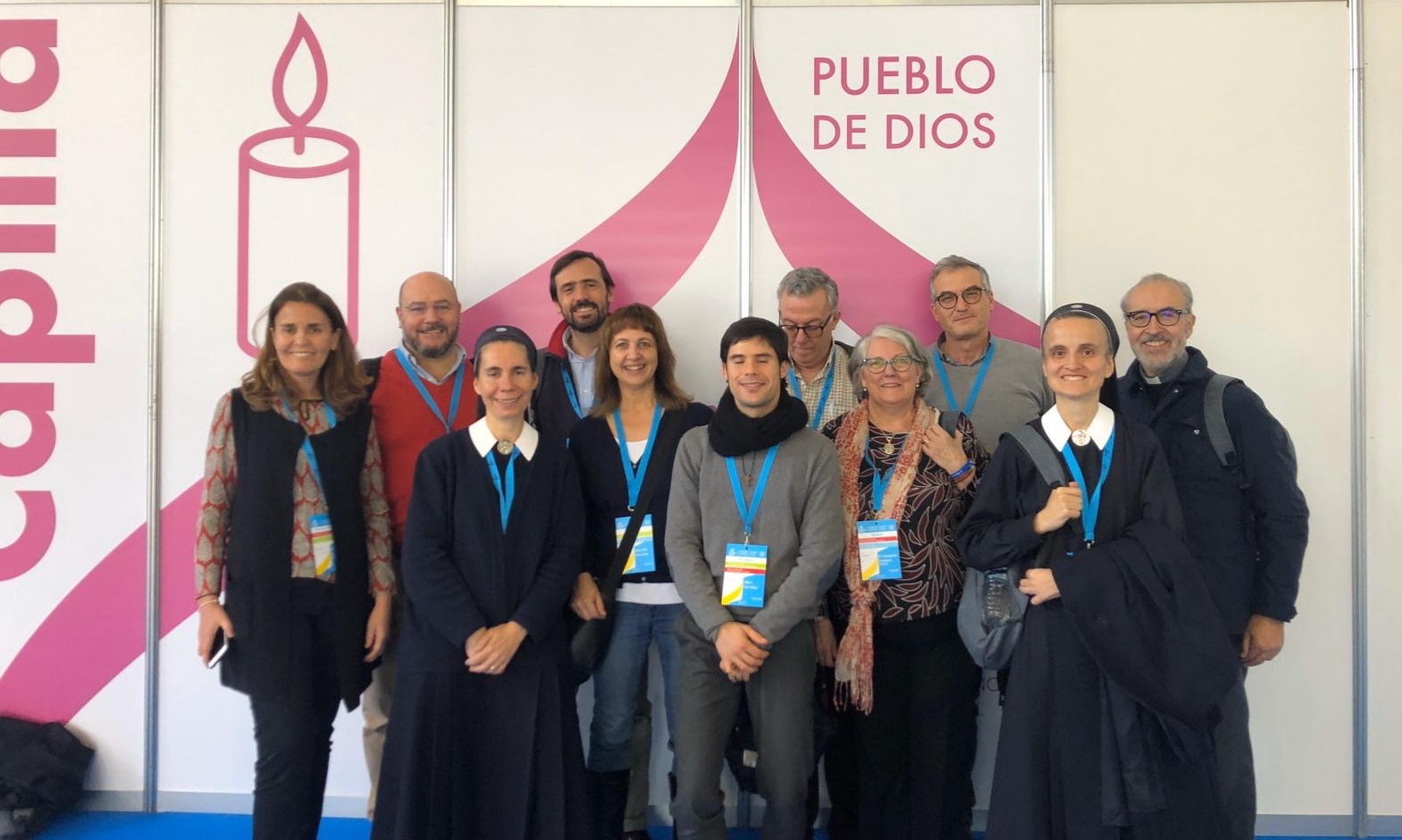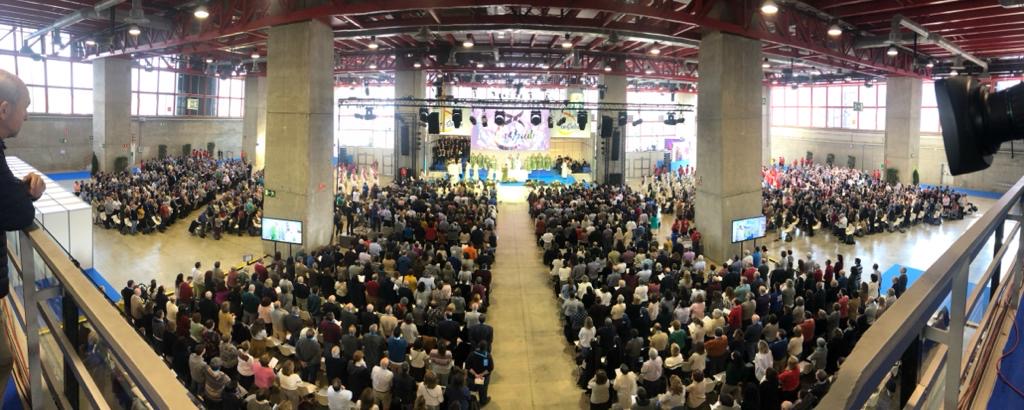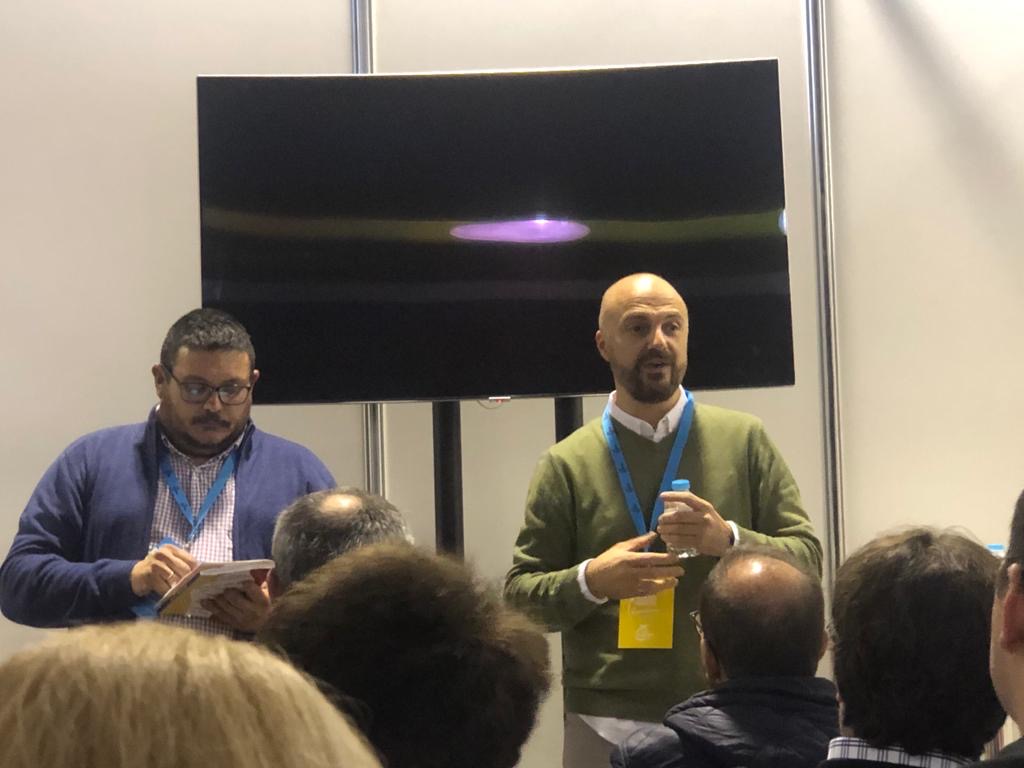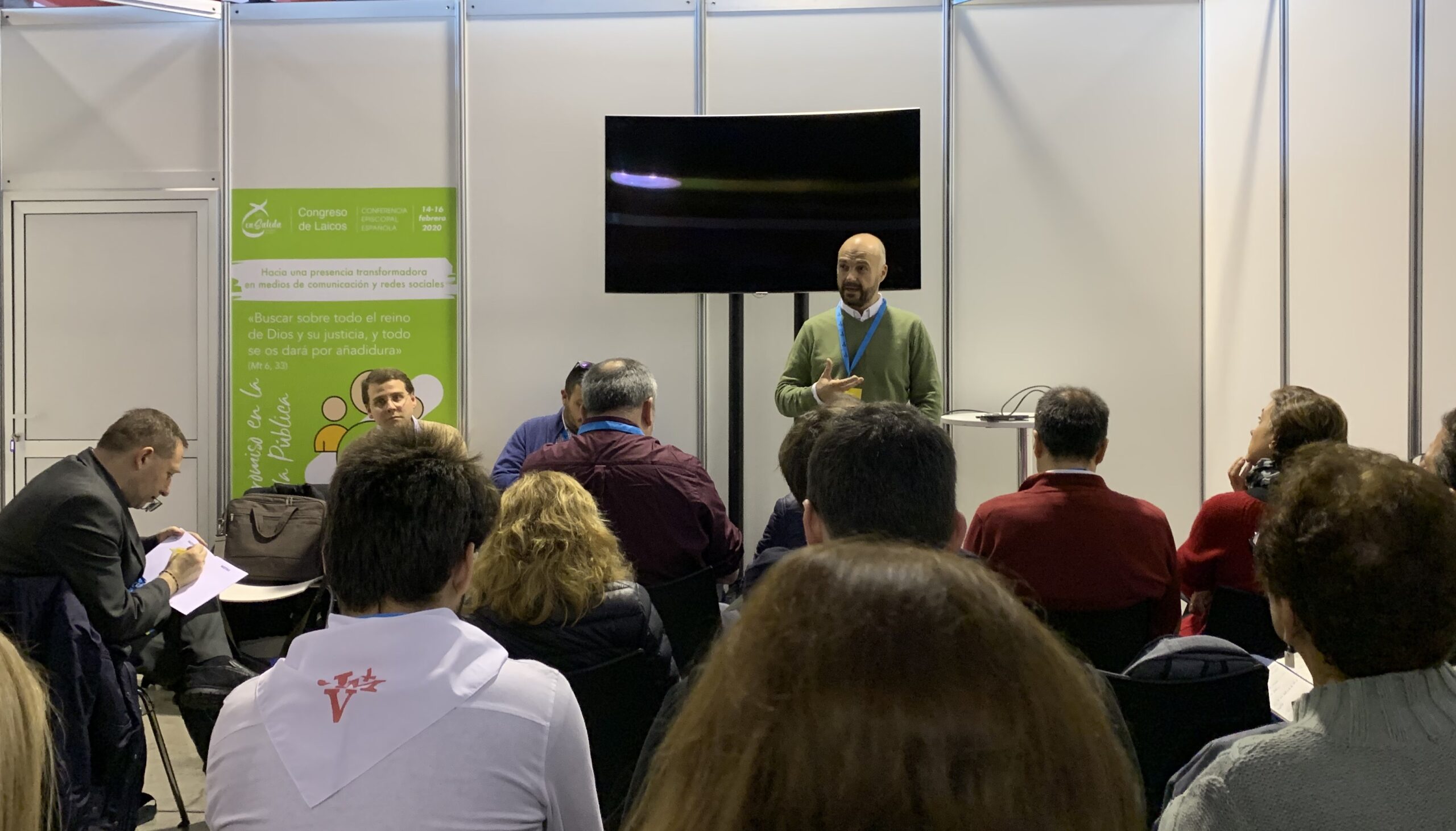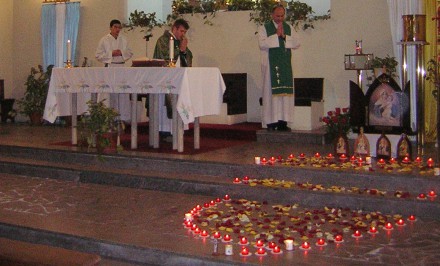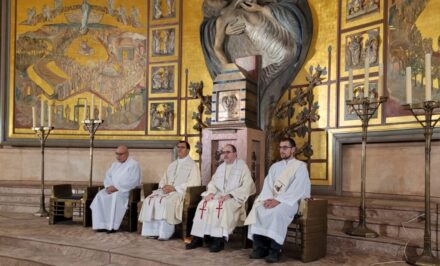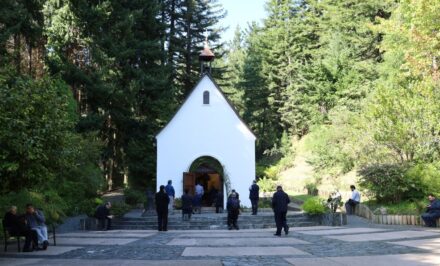SPAIN, Juan Zaforas •
In this congress, we have had the opportunity to live a unique experience, even to the moment in which we have learned and received from others. We hope to have contributed something of our own and we wish that to this experience others come in the future who can show us the way to continue on the way together.—
Surely as many already know that the passed weekend in Madrid, Spain, the celebration of the Congress for the Laity 2020 took place. More than 2,000 representatives from parishes, associations and Movements participated. The event organized by the Episcopal Conference of Spain was attended by a good number of priests and some 70 bishops.
The Schoenstatt Movement had an important representation by 16 participants from Cataluña and Madrid who were from different communitites within the Schoenstatt Movement, including Fr. José María García, the present director of the Movement in Spain.
I have some experience in organizing congresses and extremely crowded events and I must acknowledge that the aspects of organization and logistics pleasantly surprised me. It is not easy to organize and move 2,000 persons and they managed it. Congratulations.
A congress of laity…..organized by bishops
In regard to the convocation, it draws attention that a Congress for laity should be organized by an Episcopal Conference, but I greatly fear that – given there are no structures for grouping laity, their parishes, associations and Movements – this was the only way to achieve it. Let us trust that from this experience, that we as laity advance in this direction and since it has been manifested throughout the three conferences on multiple occasions, let us begin to work together and in communion, seeking that which unites us and enriches us in diversity.
On the content of the Congress and through the previous work which took place for almost two years before, it became summarized in four time-tables: “First Announcement,” “Accompaniment,” “Formative Processes,” and “Presence in Public Life,” with a report in each one and to which the beginning report and the final report can be added to. All of the material is on the web of the Congress.
At the same time, the time-tables had topical lines, testimonies and even 80 reflection groups. Their conclusions helped to work out the final report.
Synodality and discernment, two words which resounded the three days
The words “synodality” and “discernment” resounded forcefully throughout the Congress, and exactly as it was said in the beginning report, synodality is about going under the guidance of the Holy Spirit, that is, to go together and with the entire Church under its light, guidance and bursting in to learn to listen and to discern the always new horizon which wants to be given to us. Because synodality supposes and requires the bursting in of the Holy Spirit. Discernment requieres to start off from a disposition to listen to the Lord, to the others, to the same reality which always challenges us in new ways. Only he who is disposed to listen has the freedom to renounce his own point of partial or insufficient view, his customs and outlines.
I, personally, was able to participate in the topical line with the name “Toward a transforming presence in means of communication and social web” within the time-table of Presence in public life where I had the opportunity to listen to the testimony of the Schoenstatter, Javi Nieves, presenter of a radio program in the Chain 100 of the Group Cope and a representative of the Project Mission. To evangelize from these webs.
Both testimonies were very useful to me and gave me questions of interest which I now share will the readers of schoenstatt.org.
A Schoenstatter who reconsiders the form of communicating
Javi Nieves related to us his experience while leading a radio program which in a few years has passed on from being a very modern program to a “carca” program (NR: reactionary ideas, conservative), and that is due to the speed of change in our societies. They are in the full process of analysis to revise their contents and see how they can adapt to what society demands, but without changing their essences. This reflection leads me to think if we may not all have to do something similar. If we continue with the same formulas, with the same messages, it is very probable that nobody will listen to us. I make use of the thread of this topic to congratulate the presenters of the final report, a bishop and a journalist who translated a message in a very different way to which we are accustomed within the Church, undoubtedly they reached the audience. Therefore, my first conclusion, let us revise our way of doing and our messages in order to adapt them to the present society.
Javi Nieves also gave us some advice. We must not discriminate. We must intend to reach the whole world. Do not impose your flag and communicate by example. In summary and as conclusion of this part: More than ever, in the society in which we have lived, the best tools at our reach are dialog and life example.
He also spoke about the experienced change in relationship to the model of the family. His program was oriented toward a model of the family, but in very little time and with the help of the social webs, this model is changing and society is assuming it at great speed. Thus, whether we like it or not, the model of the family is changing and if we do not take this reality into account, we will not be able to contribute and add to it.
Less volunteerism and more professionalism in the digital missionary
The testimony of Mission entered full force into the world of the social webs, its opportunities, its challenges, its dangers….. They spoke to us of the figure of the professional digital Missionary, recalling that it requires to professionalize this task within the Church. There is a lot of volunteerism and a lot of frank marksmanship who are at a lot of risk if they do not know well the means or use it incorrectly. Therefore, we should all take a step forward in this sense and demand professionalism from our communicators, and especially in the confines of the internet and the social webs.
From Mission, they foster the formation for communicators on the web through Conecta online courses. Those who collaborate on tasks of communication in their parishes, associations or Movements should be formed with Mission or with other initiatives which can exist to avoid risks and to be the most effective in our communication and to be able to arrive at a major number of persons. In this sense they gave data in segments on where society to which we want to direct ourselves and for the most part are on the social webs.
Lastly, they gave us guidelines and advice on what a Social Media plan should be like, what types of contents are more attractive, and what is the digital language like. We should communicate with a Christian attitude, always choosing the truth, utilize videos, but well thought out and all of that with an elegant gesture. Conclusion, our communication needs formation and professionalism.
Official Website (spanish): www.pueblodediosensalida.com
Original Spanish: February 19, 2020. Translation: Carlos Cantú, Austin, Texas USA


